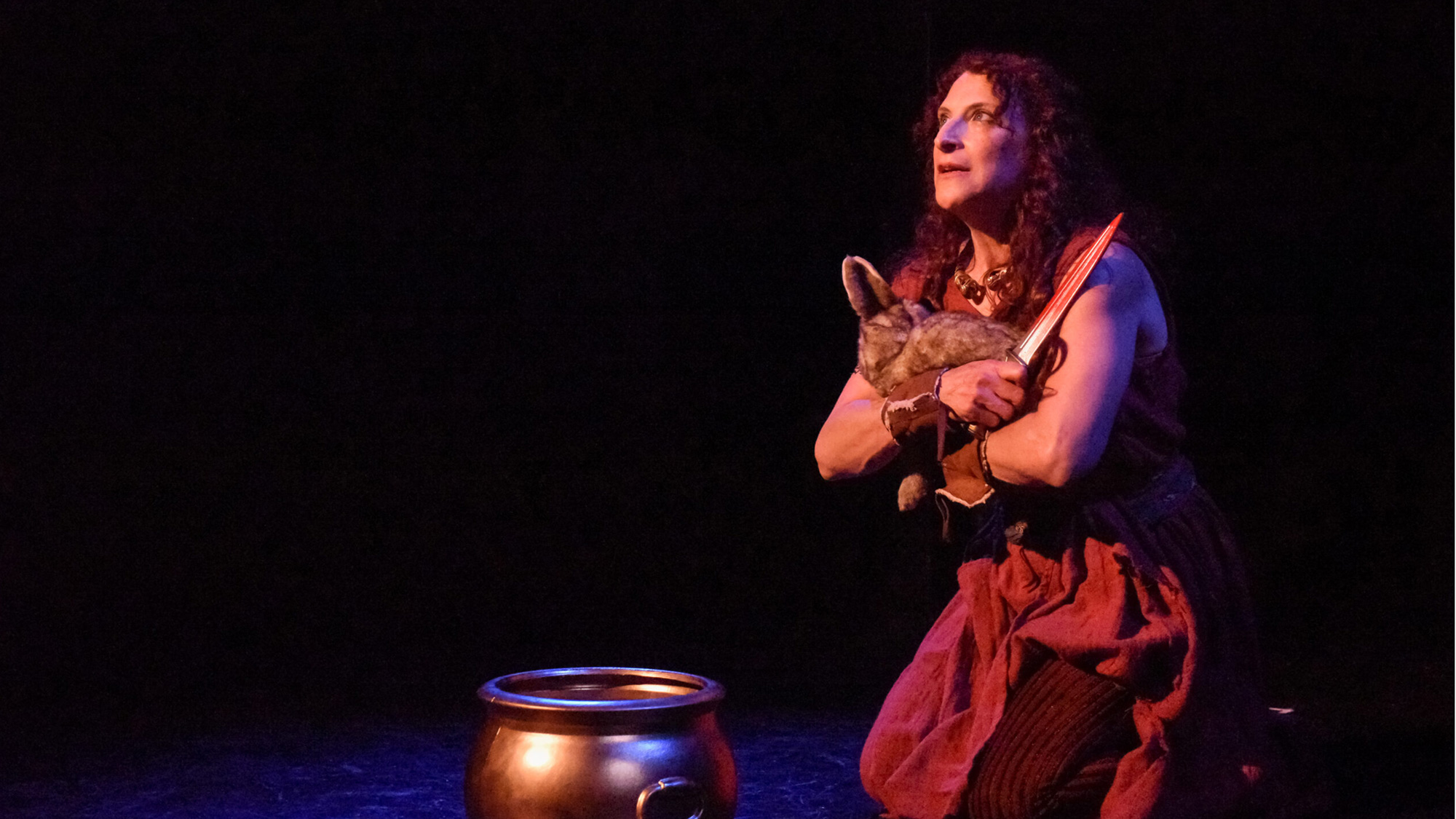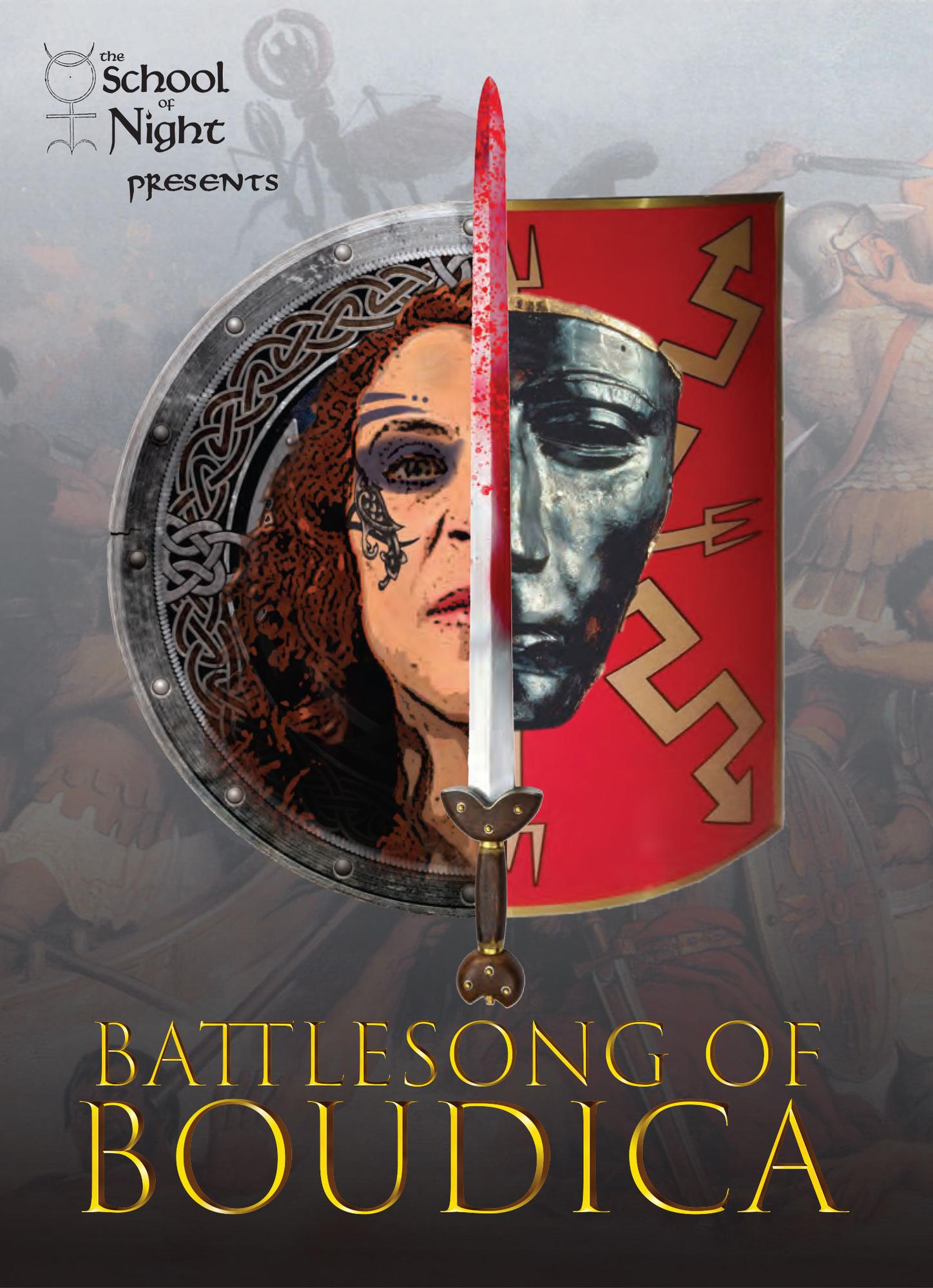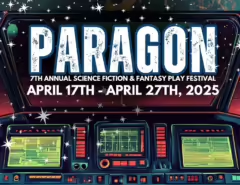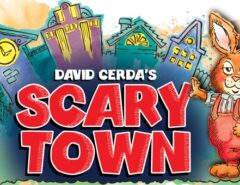Columbia College Chicago Theatre Department alum Jen Albert ’97 stars in Battlesong of Boudica, presented by The School of Night April 9 through 30 at the Hudson Theatres, 6539 Santa Monica Blvd. in Los Angeles. Albert plays the Celtic warrior queen Boudica and is also the production’s fight choreographer. For tickets, click here.
This action-packed historical drama of the Iron Age is described as “a primal spectacle of power and revenge told in song, spoken verse, dance and epic stage violence.” It’s based on the legend of the Celtic warrior queen Boudica, famous for her bloody uprising against the invading Romans in 61 A.D., after the legions of conquering Rome have swept across the mist-shrouded island of Britannia and subdued the majority of its warring, disunified tribes.
 Securing the chiefdom of her tribe by trial of fight, Boudica leads all Celtic Britannia to rise up, unite and push the Romans out. But the steeled force of Rome intends neither surrender nor retreat. And so the stage is set for an epic battle, the subject of legends and songs sung across two millennia.
Securing the chiefdom of her tribe by trial of fight, Boudica leads all Celtic Britannia to rise up, unite and push the Romans out. But the steeled force of Rome intends neither surrender nor retreat. And so the stage is set for an epic battle, the subject of legends and songs sung across two millennia.
(Content Warning – Bloody violence, suicide, depictions of animal sacrifice and verbal description of sexual assault.)
Jen Albert is an actor, producer, award-winning fight choreographer, and intimacy director. She earned a BA in Theatre from Columbia College Chicago, where she became certified in all manner of stage combat before going on to train as a martial artist. Albert is managing director of The School of Night, a not-for-profit theatre company dedicated to the study and live presentation of the dramatic works of the European renaissance, their more modern permutations and their much neglected antecedents: the folk and religious dramas of the middle ages, the tragedies, comedies and spectacle entertainments of pagan Rome and the Greek-influenced Atellan farces from which these derived. The School of Night employs a combination of the finest theatrical artistry and dramaturgical scholarship to create performances that evoke for a contemporary audience the same emotional immediacy, linguistic power, comedic vigor, charged spirituality and theatrical vitality that these artistically influential and culturally significant works provided audiences in centuries and millennia past.
|
|









